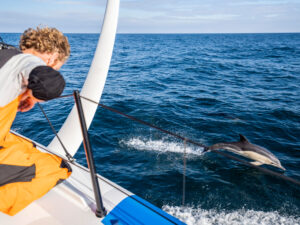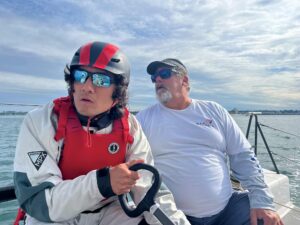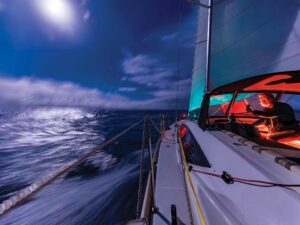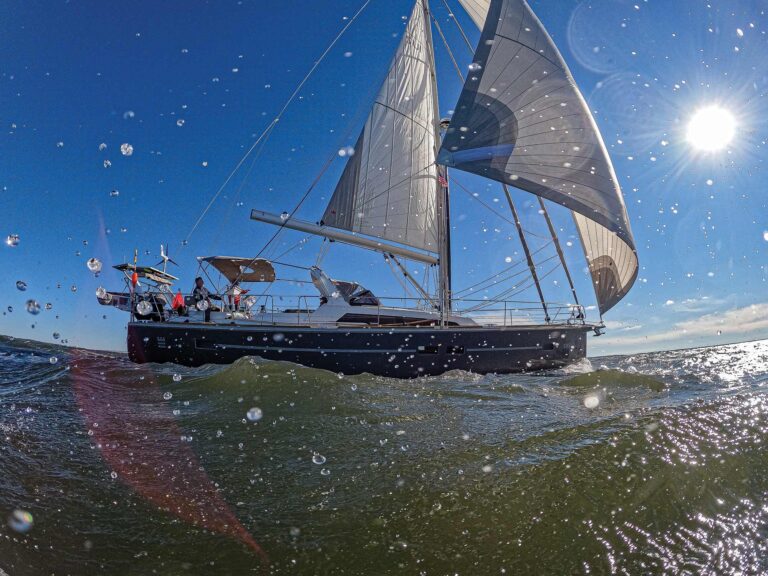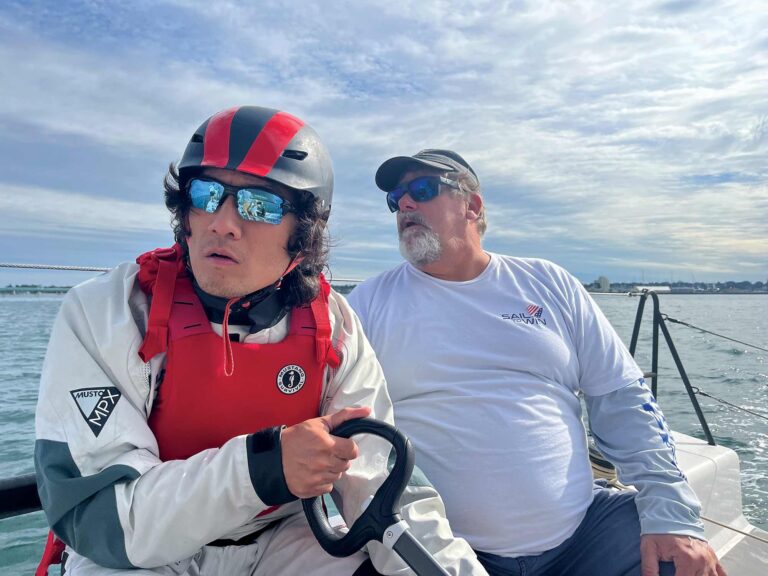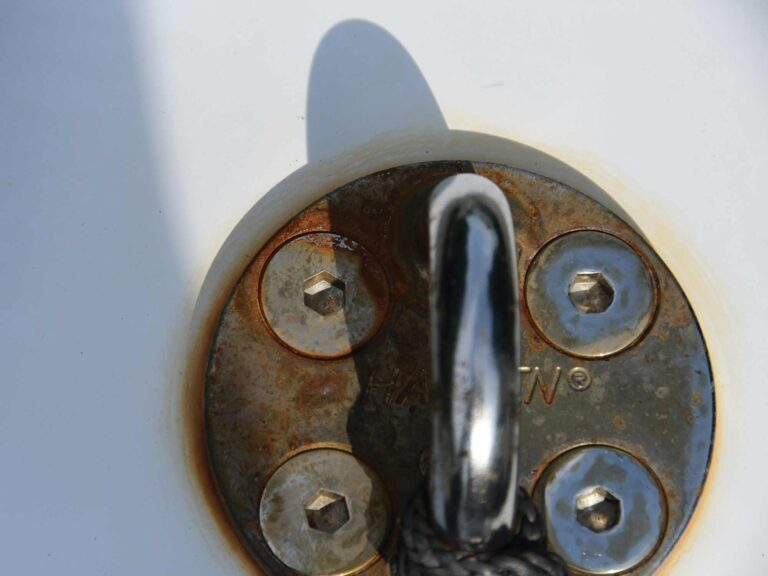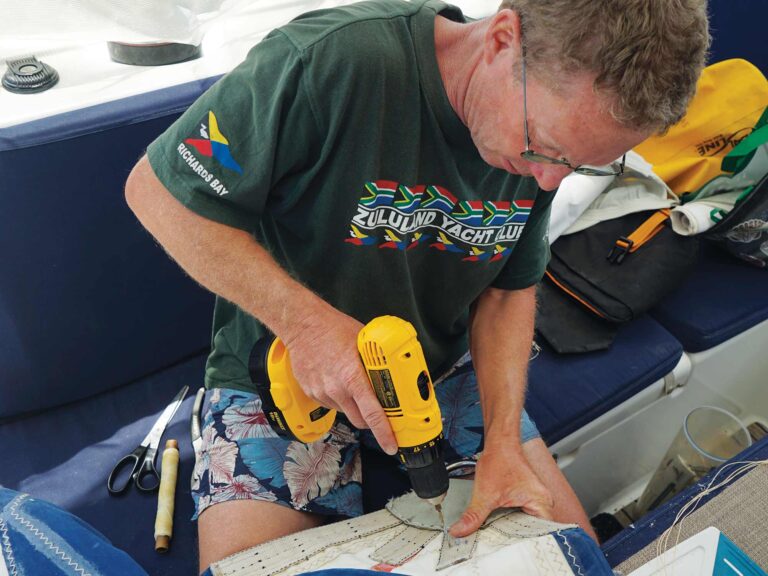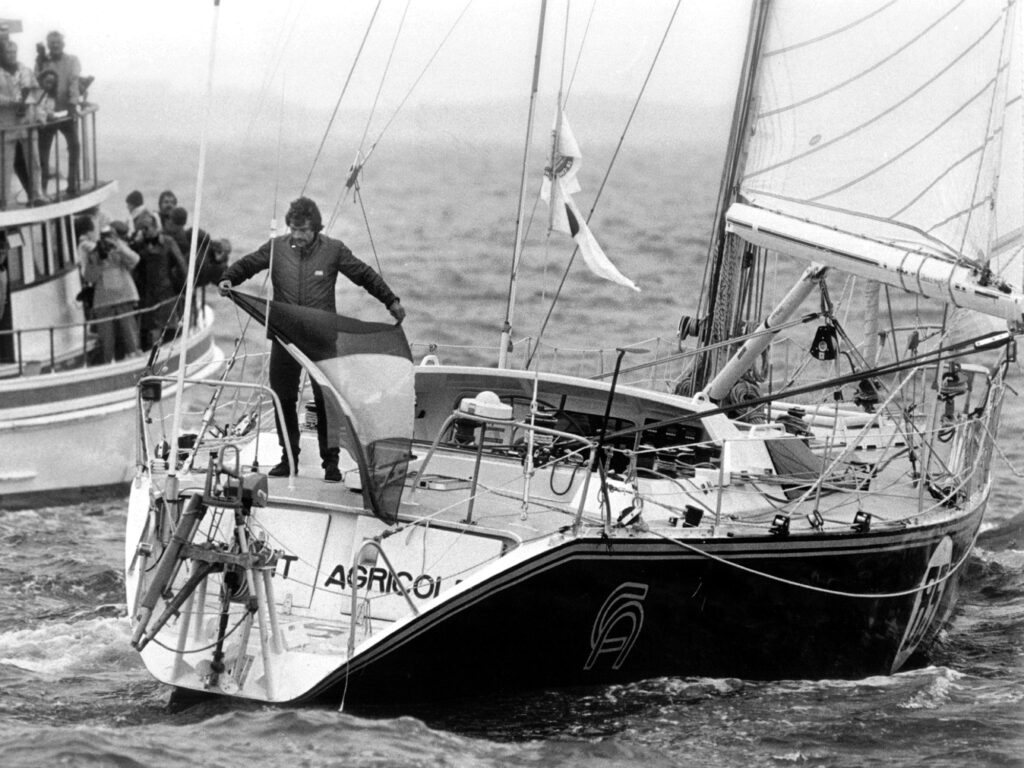
Forty years ago this month, an eclectic fleet of international solo sailors was underway on the second leg of the inaugural BOC Challenge, a dicey passage through the wild Southern Ocean from Cape Town, South Africa, to Sydney, Australia. The BOC was the first singlehanded round-the-world race to begin and conclude in the United States, having set forth from Newport, Rhode Island, on August 28, 1982.
On the occasion of the event’s 40th anniversary (where does the time go?), it seems like an appropriately nostalgic moment to reflect on not only what transpired then, but also what has unfolded in the sport of marathon ocean racing in the four decades since. The changes have been significant.
The BOC was the brainchild of a burly offshore veteran (of both yacht racing and the US Navy) named David White. He’d washed up in Newport after a solo trans-Atlantic race, with dreams of taking the competition to a new level. He recruited a willing accomplice in Jim Roos, who managed properties on Goat Island—including the marina that became the base of operations—and assumed the role as the first race director. Ultimately, the pair convinced the British-based BOC corporation (formerly known as British Oxygen) to come aboard as title sponsor for the race, which was run in four legs, with cash prizes of $25,000 each for the winners of Class I (45 to 56 feet) and Class II (32 to 44 feet). Game on.
Along with White, 16 sailors from eight nations signed up for the inaugural edition, and a wild cast of characters they were. Among them was a Japanese Zen Buddhist named Yukoh Tada; a Czech who officially defected on the day of the start, Richard Konkolski; a scrappy, tough-as-nails South African called Bertie Reed; the elder American statesmen of the fleet, former Los Angeles Times editor Dan Byrne; New Jersey grandfather and yacht broker Francis Stokes; and a handful of Frenchmen, most notably a dashing former deep-sea diver, Philippe Jeantot.
Covering the BOC was my first major assignment in yachting journalism. I was on the docks in Cape Town when they set forth, and in Sydney when they pulled in. A whole lot of drama transpired in between.
Tony Lush, an American sailing a 54-foot cat-ketch called Lady Pepperell, called for assistance early after falling off a wave and realizing his keel was wobbly. He was rescued at sea by Stokes on his Fast Passage 39, Mooneshine.
Brit Desmond Hampton was not as lucky: On the final stretch to Sydney, he overslept and crashed the 56-foot Gipsy Moth V, chartered from the family of previous owner and English legend Sir Francis Chichester, on the rocky shores of nearby Gabo Island. Hampton survived, but the boat was reduced to kindling.
Unfortunately, pre-race favorite White retired early after his 56-foot Gladiator suffered structural damage; running the race and building a solid boat proved to be one task too many. His departure opened the door for Jeantot, who’d arrived with a purpose-built 56-footer called Credit Agricole and proceeded to dominate the event, winning all four legs in decisive fashion, and setting a record for fastest solo circumnavigation: 159 days and change.
It seemed remarkable at the time, but today the record belongs to his countryman Francis Joyon, who took his 103-foot trimaran, IDEC Sport, on a spin around the planet in just over 40 days.
Jeantot went on to launch the Vendée Globe race, a nonstop round-the-world contest; founded Privilege Catamarans, a brand of cruising cats; and got into loads of tax trouble with the French government. But his true legacy, as far as I’m concerned, was maintaining France’s role as the leader in solo sailing, carrying the baton first held by Bernard Moitessier and Eric Tabarly, and passing it along to a whole new generation of countrymen, who have run with it ever since. The English may have invented the sport, but the French came to rule it.
And for me, the BOC Challenge turned out to be the first of many sailing events in which I’d cover or even compete. But none were ever better.
Herb McCormick is a CW editor-at-large.

